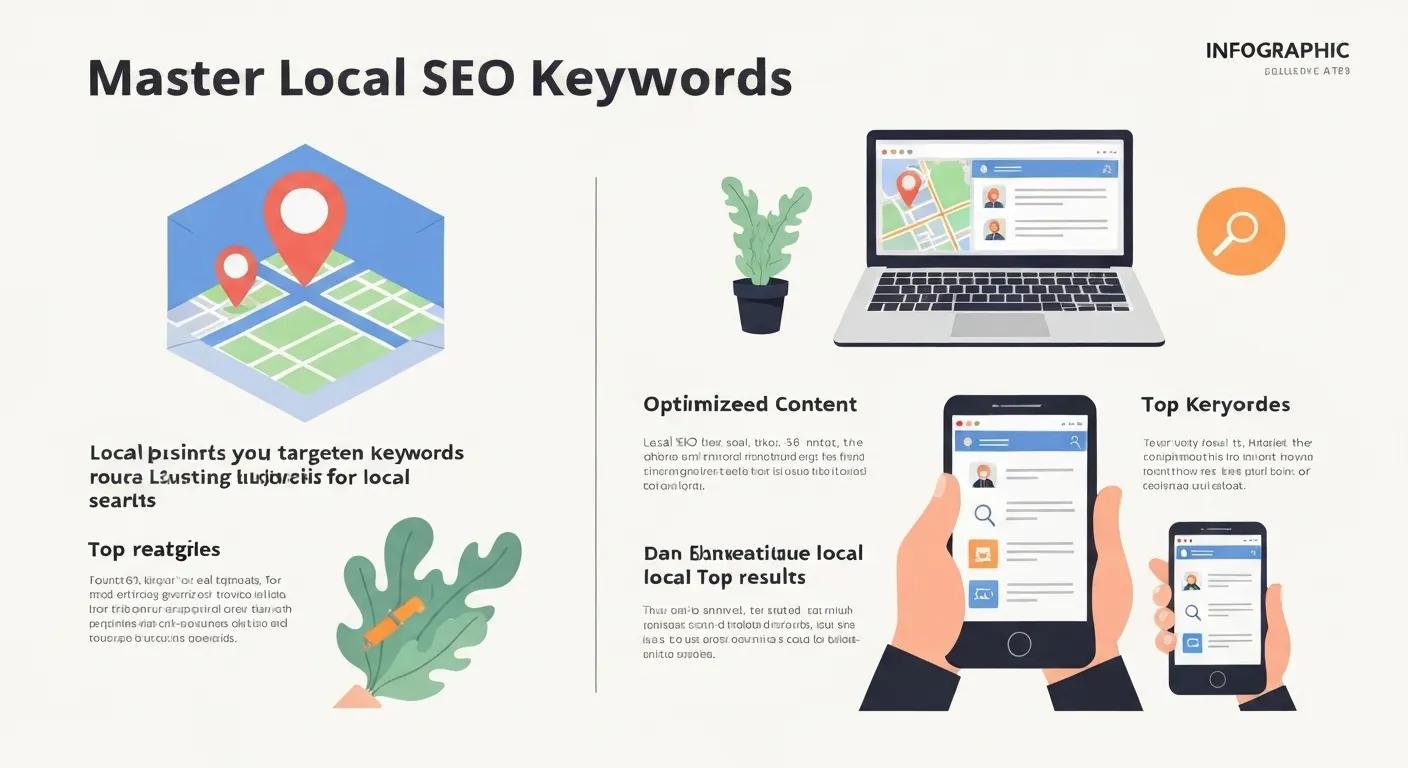Local search is a crucial aspect of any small business’s marketing strategy. With the rise of mobile devices and the increasing use of search engines to find local businesses, it has become more important than ever for small businesses to optimize their online presence for local search. Local search refers to the process of optimizing a business’s website and online listings to appear in search results when users are looking for products or services in their local area.
There are several factors that contribute to a successful local search strategy. These include having a well-optimized website, managing online reviews, choosing the right website hosting provider, conducting local keyword research, optimizing on-page and off-page elements, and maintaining consistent business listings across the web. By implementing these strategies, small businesses can increase their visibility in local search results and attract more customers.
Key Takeaways
- Local SEO can significantly boost your business by increasing online visibility and attracting more local customers.
- Regular WordPress maintenance is crucial for local search success, as it ensures your website is up-to-date and optimized for search engines.
- Positive reviews can have a powerful impact on your local search rankings and overall reputation, making review management a key aspect of local SEO.
- Choosing the right website hosting provider is essential for ensuring fast load times, reliable uptime, and optimal performance for your local business website.
- Local keyword research and on-page optimization are critical for targeting the right audience and making your website more search engine friendly.
Local SEO: The Key to Boosting Your Business
Local SEO, or search engine optimization, is the process of optimizing a website and online listings to rank higher in local search results. It differs from traditional SEO in that it focuses on targeting specific geographic locations rather than broad keywords. Local SEO is essential for small businesses because it allows them to reach potential customers who are actively searching for products or services in their area.
One of the main benefits of local SEO is that it can significantly increase a small business’s visibility in search results. When a user searches for a specific product or service in their area, Google and other search engines prioritize local businesses that have optimized their websites and online listings for local search. By ranking higher in these results, small businesses can attract more customers and increase their revenue.
Ranking high in local search results is crucial for small businesses because it increases their chances of being found by potential customers. Studies have shown that the majority of users do not go beyond the first page of search results, so it is essential for small businesses to rank as high as possible. By implementing a strong local SEO strategy, small businesses can improve their visibility and increase their chances of being found by potential customers.
The Importance of WordPress Maintenance for Local Search
WordPress maintenance plays a crucial role in a small business’s local search rankings. A well-maintained WordPress site can improve site speed, enhance security, and provide a better user experience, all of which are important factors in local search rankings.
Site speed is a critical factor in local search rankings. Google has stated that site speed is one of the signals used by its algorithm to rank websites. A slow-loading website can negatively impact user experience and lead to higher bounce rates, which can ultimately result in lower search rankings. By regularly maintaining their WordPress site and optimizing it for speed, small businesses can improve their chances of ranking higher in local search results.
Security is another important aspect of WordPress maintenance that can impact local search rankings. Google has stated that it prioritizes secure websites in its search results. A hacked or compromised website can not only harm a small business’s reputation but also result in lower search rankings. By regularly updating WordPress plugins and themes, implementing strong passwords, and using security plugins, small businesses can protect their website and improve their local search rankings.
In addition to site speed and security, maintaining a WordPress site also involves regularly updating content and ensuring that it is relevant and engaging for users. This can help improve user experience and increase the chances of users staying on the site longer, which can positively impact local search rankings.
Review Management: The Power of Positive Feedback
| Metrics | Data |
|---|---|
| Number of positive reviews | 50 |
| Number of negative reviews | 10 |
| Overall rating | 4.5 stars |
| Number of customers who left positive feedback | 35 |
| Number of customers who left negative feedback | 8 |
| Percentage of positive feedback | 80% |
| Percentage of negative feedback | 20% |
| Number of repeat customers | 25 |
| Number of new customers | 20 |
Online reviews play a significant role in a small business’s local search rankings. Positive reviews not only help build trust with potential customers but also signal to search engines that the business is reputable and provides quality products or services.
Studies have shown that online reviews have a direct impact on local search rankings. Businesses with a higher number of positive reviews tend to rank higher in local search results compared to those with fewer or negative reviews. This is because search engines prioritize businesses that have a strong online reputation and positive feedback from customers.
Encouraging positive reviews is essential for small businesses looking to improve their local search rankings. This can be done by providing excellent customer service, asking satisfied customers to leave a review, and responding to reviews in a timely and professional manner. By actively managing online reviews and encouraging positive feedback, small businesses can improve their local search rankings and attract more customers.
Managing negative reviews is also crucial for small businesses. While it is impossible to please everyone, addressing negative feedback in a professional and constructive manner can help mitigate the impact on local search rankings. By responding to negative reviews and taking steps to address any issues raised by customers, small businesses can show potential customers that they value feedback and are committed to providing a positive experience.
Several businesses have successfully leveraged online reviews for local search success. For example, a local restaurant in New York City saw a significant increase in foot traffic and revenue after actively managing their online reviews. By responding to customer feedback, addressing any issues raised, and encouraging positive reviews, the restaurant was able to improve its local search rankings and attract more customers.
Website Hosting: Choosing the Right Provider for Your Local Business
Website hosting plays a crucial role in a small business’s local search rankings. The right hosting provider can improve site speed, ensure uptime, and provide reliable security measures, all of which are important factors in local search rankings.
Site speed is an essential factor in local search rankings. Google has stated that site speed is one of the signals used by its algorithm to rank websites. A slow-loading website can negatively impact user experience and lead to higher bounce rates, which can ultimately result in lower search rankings. By choosing a hosting provider that offers fast servers and optimized caching, small businesses can improve their chances of ranking higher in local search results.
Uptime is another important aspect of website hosting that can impact local search rankings. Search engines prioritize websites that are accessible and reliable. If a website is frequently down or experiences long periods of downtime, it can negatively impact search rankings. By choosing a hosting provider that offers a high uptime guarantee, small businesses can ensure that their website is always accessible to users and improve their local search rankings.
Security is also a crucial factor to consider when choosing a website hosting provider for a local business. Google has stated that it prioritizes secure websites in its search results. A hacked or compromised website can not only harm a small business’s reputation but also result in lower search rankings. By choosing a hosting provider that offers robust security measures, such as regular backups and malware scanning, small businesses can protect their website and improve their local search rankings.
Uncover Profitable Local Keywords to Drive More Customers

Local keyword research is essential for small businesses looking to improve their local search rankings. By identifying the right keywords and phrases that potential customers are using to find products or services in their area, small businesses can optimize their website and online listings to attract their target audience.
Local keyword research involves identifying keywords and phrases that are relevant to a specific geographic location. This can be done using various tools and techniques, such as Google Keyword Planner, Google Trends, and competitor analysis. By conducting thorough keyword research, small businesses can gain insights into the search behavior of their target audience and optimize their website and online listings accordingly.
Several businesses have successfully used local keywords to attract their target audience. For example, a local bakery in San Francisco used local keyword research to identify popular search terms related to baked goods in the area. By optimizing their website and online listings with these keywords, the bakery was able to increase its visibility in local search results and attract more customers.
On-page Optimization: Making Your Website Search Engine Friendly
On-page optimization is crucial for small businesses looking to improve their local search rankings. By optimizing various on-page elements, such as title tags, meta descriptions, and header tags, small businesses can increase their visibility in local search results and attract more customers.
Title tags are one of the most important on-page elements for local search optimization. They are displayed as the clickable headline in search engine results and should accurately describe the content of a web page. By including relevant keywords and geographic locations in title tags, small businesses can improve their chances of ranking higher in local search results.
Meta descriptions are another important on-page element for local search optimization. They are displayed as the brief description below the title tag in search engine results and should provide a concise summary of the content of a web page. By including relevant keywords and geographic locations in meta descriptions, small businesses can increase their chances of attracting clicks from potential customers.
Header tags, such as H1 and H2 tags, are also important for on-page optimization. They help search engines understand the structure and hierarchy of a web page’s content. By including relevant keywords and geographic locations in header tags, small businesses can improve their chances of ranking higher in local search results.
Off-page Optimization: Building Your Local Presence Online
Off-page optimization is crucial for small businesses looking to improve their local search rankings. By building a strong off-page presence through activities such as link building and social media marketing, small businesses can increase their visibility in local search results and attract more customers.
Link building is one of the most important off-page optimization strategies for local search success. Search engines consider the number and quality of links pointing to a website as a signal of its authority and relevance. By actively seeking out high-quality backlinks from reputable websites, small businesses can improve their chances of ranking higher in local search results.
Social media marketing is another important off-page optimization strategy for local search success. Social media platforms provide an opportunity for small businesses to engage with their target audience, build brand awareness, and attract potential customers. By regularly posting relevant and engaging content, responding to comments and messages, and actively participating in conversations, small businesses can improve their visibility in local search results.
Local Business Listings: The Importance of Consistency Across the Web
Local business listings play a crucial role in a small business’s local search rankings. Consistent and accurate business listings across various platforms can improve a business’s visibility in local search results and attract more customers.
There are several business listing platforms that small businesses should consider optimizing for local search. These include Google My Business, Yelp, Bing Places, and Facebook Business. By claiming and optimizing their listings on these platforms, small businesses can increase their chances of ranking higher in local search results.
Consistency is key when it comes to business listings. Small businesses should ensure that their name, address, and phone number (NAP) are consistent across all listings. Inconsistencies in NAP information can confuse search engines and negatively impact local search rankings. By regularly monitoring and updating their business listings, small businesses can ensure that their information is accurate and consistent across the web.
Taking Your Local Business to the Next Level with Local Search
In conclusion, local search is a crucial aspect of any small business’s marketing strategy. By implementing a comprehensive local search strategy that includes WordPress maintenance, review management, website hosting optimization, local keyword research, on-page and off-page optimization, and consistent business listings, small businesses can increase their visibility in local search results and attract more customers.
Investing in local search is essential for long-term success. With the increasing use of mobile devices and the growing importance of online reviews, small businesses cannot afford to ignore the power of local search. By optimizing their online presence for local search, small businesses can reach potential customers who are actively searching for products or services in their area and increase their revenue.
For small businesses looking to improve their local search performance, there are several resources available. These include online tutorials, guides, and forums where small business owners can learn more about local search optimization strategies and best practices. By staying informed and implementing the latest techniques, small businesses can take their local business to the next level with local search.
If you’re interested in local search optimization, you may also find this article on the best SEO solutions by Docksyde Co. quite helpful. They provide valuable insights and strategies to improve your website’s visibility in local search results. From optimizing your website’s content to implementing effective link building techniques, this article covers various aspects of SEO that can greatly impact your local search rankings. Check it out here.
FAQs
What is local search?
Local search is a type of online search that focuses on finding businesses or services within a specific geographic area. It is used by people who are looking for products or services in their local area.
How does local search work?
Local search works by using search engines like Google, Bing, or Yahoo to find businesses or services in a specific geographic area. The search engine uses the user’s location or the location they specify to provide relevant results.
What are the benefits of local search?
Local search provides several benefits, including finding businesses or services in a specific geographic area, providing relevant results based on the user’s location, and helping businesses reach potential customers in their local area.
What are some examples of local search?
Some examples of local search include searching for a nearby restaurant, finding a local plumber, or looking for a nearby grocery store.
What are some tips for optimizing local search?
Some tips for optimizing local search include claiming and verifying your business listing on Google My Business, using relevant keywords in your business description, and encouraging customers to leave reviews.
What is the difference between local search and organic search?
Local search focuses on finding businesses or services in a specific geographic area, while organic search focuses on finding information related to a specific topic or keyword. Local search results are typically displayed in a map format, while organic search results are displayed in a list format.







